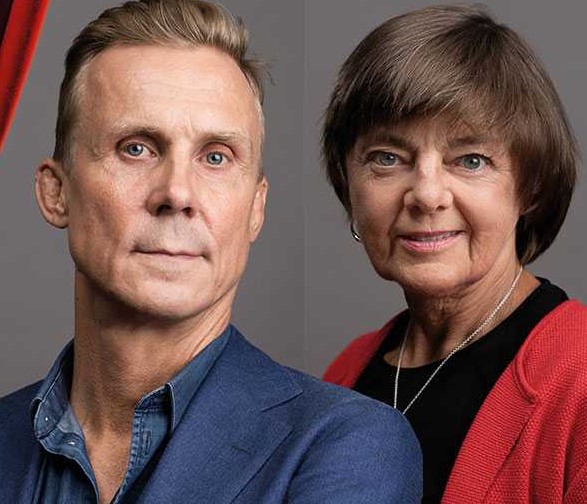
Crisis Support Is Not Enough to Save Culture. The Swedish Union for Performing Arts and Film: A Large Part of Our Labour Market Has Disappeared

The pandemic has spotlighted how poorly adapted security systems are for those working in the cultural field. A large part of our labour market has disappeared, writes Simon Norrthon and Christina Olofson.
Culture and democracy are not something we have. They are something we actively create. A vital and inclusive cultural life is a prerequisite for an open democracy.
The goal of the state cultural policy is to create real conditions for everyone to use freedom of expression, but as the crisis develops, it is those who have the financial resources and contacts who can afford to operate in the cultural industry.
The cultural industries constitute an important part of Sweden’s workforce and often in expansive industries, but working conditions entails the loss of important skills during the pandemic and this also threatens regrowth.
When the conditions of the cultural sector change as dramatically as they did in the past year, it becomes clear how much of society is affected, and how poor our lives become without culture and art experiences.
For those of us working in the cultural industries, the experience has been literal when a large part of our labour market has disappeared, at the same time as there is a lack of a functioning social security system for the industry.
Most people who work in the cultural sector are freelancers. Sometimes fixed-term employees who go from project to project, but here is also a large part of the countries self-employed. Not because they have chosen to engage in entrepreneurship but because employment is not an option.
The pandemic has spotlighted on how poorly adapted the security systems are for those active in the cultural field, regardless of the form of employment.
Being self-employed in the cultural and the media sector can be a practical way for those with uneven incomes and irregular assignments to gain control over their working conditions. But it also means that you do not enjoy the benefits and security that come with a collective agreement.
You must take responsibility for holidays, insurance, pension provisions and skills development.
A significant shortcoming in the current social insurance system is that the large group of self-employed have such a hard time getting a sensible level of sick pay from the Swedish Social Insurance Agency and that they must put their company to rest to receive support from the unemployment insurance. A labour market that requires self-employment must also offer reasonable insurance and security systems.
The crisis support distributed during the year has been crucial and has kept many cultural workers and companies afloat, but the general business support has been designed for completely different industries and employment conditions than those in the culture and events sectors.
Private theaters, cinemas, concert organizers, artists and freelance technicians have been referred to emergency and temporary support that has been far from sufficient to cover the financial losses that came with the closure.
The infrastructure of the cultural sector must be improved so that after the crisis we will have an inclusive cultural sector with a diversity of artistry and cultural expressions.
This week, the government presented an artist policy letter, which among other things addresses the problems with the unemployment insurance fund and the security systems. Now the political branches must work together to bring about the real changes that are necessary.
It is important that there is continued crisis support for the cultural sector as long as there is any form of restrictions, but in the long term, the funding allocated for performing arts and film policy must be increased so that employers can take responsibility for the freelancers and offer good working conditions.
Even if the Ministry of Culture does its share, the problems of the cultural sector largely lie with other ministries such as the Ministry of Trade, Industry, Finance and Social Affairs. Cooperation between the ministries can be significantly improved to seriously create a sustainable improvement of the conditions for those who are active in the field of culture.
Culture is not a special interest, it concerns all citizens and all ministries, but an accessible and representative cultural life does not exist by their own power, it requires politics. Therefore, it must be possible to support oneself in one’s profession and we must have security systems adapted to the conditions under which we work.
We do not want it to be as usual when we restart. We demand that it gets better.
Simon Norrthon, actor and president of the Swedish Union for Performing Arts and Film.
Christina Olofson, film director and vice-president of the Swedish Union for Performing Arts and Film.
Photo: Sören Vilks (MONTAGE)/ Getty
This is an English translation of original text in Swedish penned by Simon Norrthon and Christina Olofson, published in Afronbladet, on March 28, 2021. Read and access it here.
